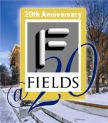|
|
|
MathEd Forum |
|||||||
| February 15, 2026 |
|
||||||||
AGENDA 10:00 - 10:10 am Reports: OAME, OMCA, OCMA, CMESG, CMS, and other. 10:10 - 11:00 am Abstract: Although the amount of mathematics education research pertaining to gender issues has declined since the 1990s, gender issues remain a salient topic, as students' experiences with mathematics continue to be highly gendered. In this presentation, I share two research projects that explored students' gendered relationships with mathematics. The first project investigated the supports and challenges faced by female upper-year undergraduate students in their selection of and perseverance in the field of mathematics. The second project investigated elementary students' views of and experiences with mathematics and mathematicians, and the ways that these views may be impacted by parents' views, teachers' views, and popular media representations. I will also discuss the ways that considerations of gender played a role in the design, data collection, and data analysis of both projects. Biography: Jennifer Hall is a Ph.D. candidate and part-time professor in Mathematics Education at the University of Ottawa. Her research interests include gender issues in mathematics and societal views of mathematics. Jennifer's doctoral research focuses on elementary students' views of and experiences with mathematics and mathematicians, and the ways students' views may be impacted by parents' views, teachers' views, and popular media representations. 11:00 - 11:50 am Abstract: Mathematics continues to be the "critical filter" (Sells, 1978) through which students with quantitative skills pass and those without them stop. While the gender gap in mathematics achievement between female and male students is diminishing, few high-achieving female high school students are choosing to enroll in advanced mathematics courses and pursue career paths that involve mathematics. This presentation focuses on the past and present issues of gender differences in mathematics. Psychological, social, economic and other factors proposed by researchers as accountable for these differences are examined specifically in relation to females' participation in mathematics. Findings from my past research with undergraduate female students will serve as case study. Recommendations on ways to promote female participation in mathematics at all levels of schooling are also provided. Biography: Atinuke Adeyemi is a PhD student at the University of Windsor. She had her elementary, high, and post-secondary school education in Nigeria, where she received her Bachelor of Science in Mathematics. She worked as a banker in Lagos, Nigeria, before migrating with her family to Canada in 2005, and has since obtained her Bachelor of Education degree and Masters of Education from the University of Windsor. She is currently enrolled in the Joint PhD Program in the same university. Her passion to seek ways of making females enjoy mathematics and ensure their increased participation in the subject inspired her to focus on examining factors that influence undergraduate female students' decisions to pursue mathematics-related studies/careers in her master's thesis. As a follow up on this thesis, she proposed to investigate mathematics anxiety among elementary school teachers for her doctoral dissertation. Atinuke was the recipient of the Canadian Federation of University Women (CFUW, 2012) Award and Ontario Secondary School Teachers Federation (OSSTF, 2007) Awards. She has been involved in research projects, including collaborative inquiry research with teachers, and still participates in interdisciplinary research with researchers from other disciplines. Specifically, her areas of research interest include gender differences and socio-cultural issues in mathematics education, and school-parents partnerships. 11:50 - 12:00 pm Discussion 12:00 - 1:00 pm LUNCH BREAK 1:00 - 2:00 pm AFTERNOON PROGRAM 1:00 - 1:50 pm Sandy Graham (Lecturer - University of Waterloo, Centre for Education in Math and Computing (CEMC)): Women studying Computer Science: Trends and possibilities for improvement. Abstract: The number of women studying computer science at all
academic levels is low. But a bigger concern is that in the mid-80's
the percentage was much higher and it has steadily dropped in the
last three decades. There are many questions to ask, but the answers
are not always simple. What factors are influencing this trend?
Why is it important to encourage female students to consider computer
science? What efforts are being made to change the situation? This
session will be an opportunity to discuss these issues and more. 1:50 - 2:00 pm General Discussion 2:00 pm Adjournment
|
|||||||||

